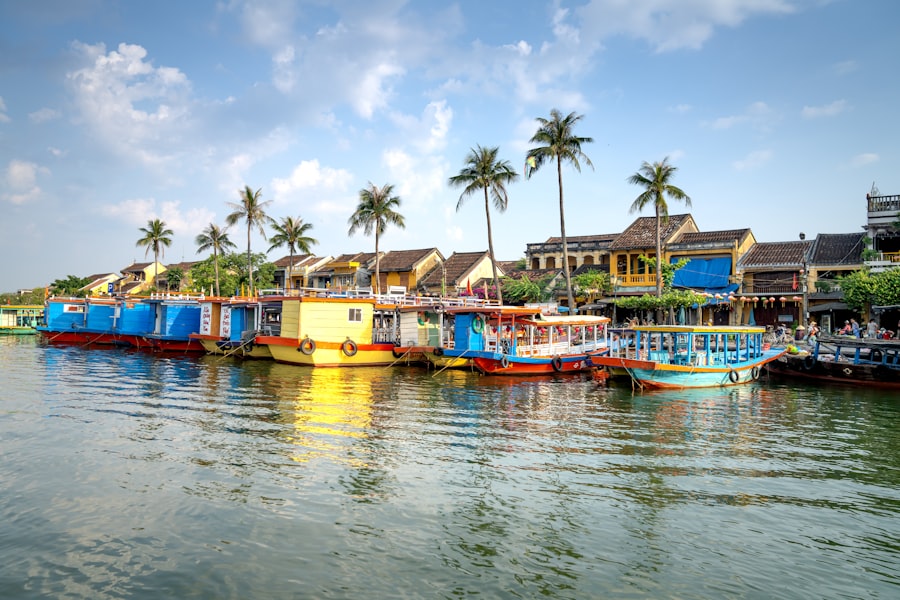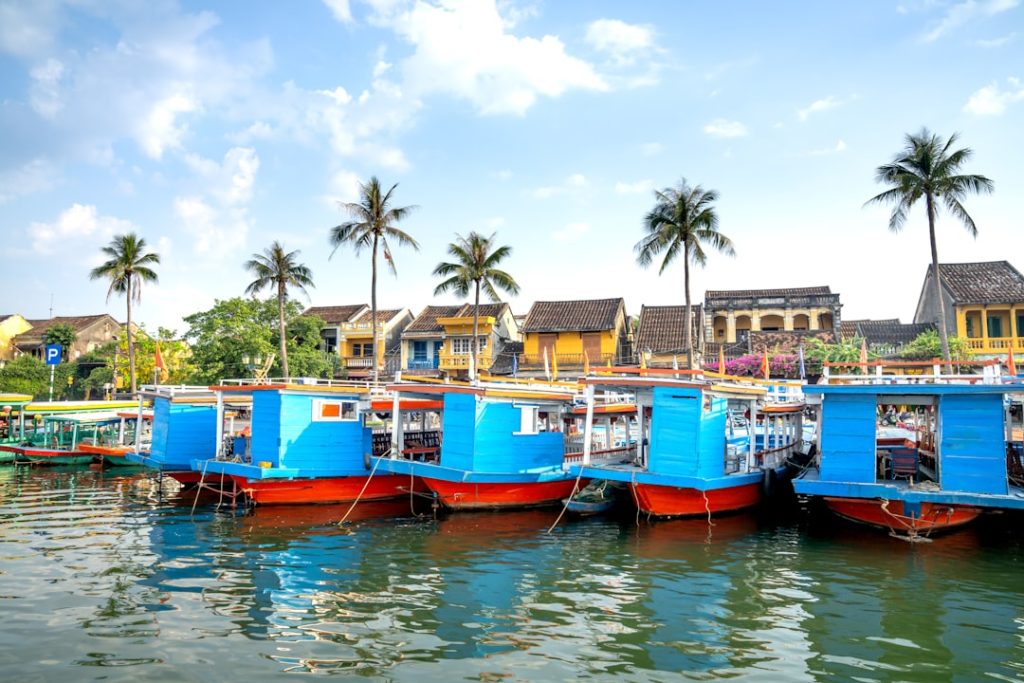Boat rentals come in a variety of forms, catering to diverse preferences and activities. The most common types include powerboats, sailboats, kayaks, and pontoons. Powerboats are ideal for those seeking speed and excitement on the water, often used for water sports such as wakeboarding or tubing.
These vessels can range from small runabouts to larger motor yachts, providing options for both casual outings and more adventurous excursions. Sailboats, on the other hand, offer a serene experience, allowing individuals to harness the wind for propulsion. They are perfect for leisurely cruises or competitive sailing events, appealing to those who appreciate the art of sailing.
Kayaks and canoes represent another category of boat rentals, often favored for their accessibility and ease of use. These smaller vessels are perfect for exploring calm lakes, rivers, or coastal areas. They allow for a more intimate connection with nature, as paddlers can navigate through narrow channels and observe wildlife up close.
Pontoons are another popular choice, especially for family gatherings or social events on the water. Their spacious decks and stability make them ideal for entertaining, fishing, or simply relaxing with friends and family. Understanding these various types of boat rentals is crucial in determining which vessel aligns best with your intended activities and preferences.
Key Takeaways
- Different boat types cater to various activities and group sizes.
- Selecting the right boat depends on your experience, trip purpose, and passenger count.
- Be aware of pricing structures, rental terms, and hidden fees before booking.
- Ensure you meet safety and licensing requirements to operate the boat legally.
- Review insurance options and rental agreements carefully to protect yourself.
Choosing the Right Boat for Your Needs
Selecting the appropriate boat rental involves considering several factors that align with your specific needs and desires. First and foremost, assess the type of activities you plan to engage in during your time on the water. If you envision a day filled with thrilling water sports, a powerboat equipped with the necessary amenities would be ideal.
Conversely, if your goal is to unwind and enjoy a peaceful day of fishing or sightseeing, a pontoon or sailboat may be more suitable. Additionally, consider the number of people who will be joining you; larger groups may require more spacious vessels to ensure comfort and enjoyment. Another critical aspect to consider is your level of experience with boating.
If you are a novice or lack confidence in your boating skills, opting for a rental that includes a captain or guide can enhance your experience significantly. Many rental companies offer this service, allowing you to relax and enjoy the scenery without the stress of navigating unfamiliar waters. For those with more experience, choosing a boat that allows for self-navigation can provide a sense of freedom and adventure.
Ultimately, understanding your needs and preferences will guide you in selecting the right boat rental that enhances your overall experience on the water.
Navigating Pricing and Rental Terms

When it comes to boat rentals, pricing can vary widely based on several factors, including the type of boat, rental duration, and location. Generally, powerboats tend to be more expensive than kayaks or canoes due to their size and maintenance costs. Rental companies often charge by the hour or day, with additional fees for fuel or equipment rentals such as life jackets or fishing gear.
It is essential to inquire about any hidden costs that may not be immediately apparent in the initial quote. Understanding these pricing structures will help you budget effectively for your boating adventure. In addition to pricing, it is crucial to familiarize yourself with the rental terms associated with your chosen vessel.
Rental agreements typically outline policies regarding cancellations, deposits, and damage liability. Some companies may require a security deposit that is refundable upon the safe return of the boat in its original condition. Additionally, be aware of any restrictions on where you can take the boat; some rentals may limit travel to specific bodies of water or require permission for certain areas.
By thoroughly reviewing these terms before finalizing your rental, you can avoid unexpected surprises and ensure a smooth experience.
Safety and Licensing Requirements
| Requirement | Description | Applicable Industry | Regulatory Body | Compliance Frequency |
|---|---|---|---|---|
| Workplace Safety Training | Mandatory training on safety protocols and emergency procedures | Construction, Manufacturing, Healthcare | OSHA (Occupational Safety and Health Administration) | Annually |
| Equipment Certification | Certification of machinery and equipment to meet safety standards | Manufacturing, Transportation | ISO (International Organization for Standardization) | Every 2 years |
| Hazardous Materials Handling License | License required for handling and storage of hazardous substances | Chemicals, Pharmaceuticals | EPA (Environmental Protection Agency) | Every 3 years |
| Fire Safety Inspection | Inspection of premises for fire hazards and compliance with fire codes | All commercial buildings | Local Fire Department | Annually |
| Driver’s License Verification | Verification of valid driver’s licenses for commercial vehicle operators | Transportation, Logistics | Department of Motor Vehicles (DMV) | Ongoing |
| Environmental Compliance Certification | Certification ensuring operations meet environmental safety standards | Manufacturing, Energy | EPA (Environmental Protection Agency) | Every 5 years |
Safety should always be a top priority when renting a boat. Different regions have varying regulations regarding safety equipment and licensing requirements for boaters. In many places, it is mandatory to have life jackets on board for each passenger, as well as other safety gear such as flares, fire extinguishers, and first aid kits.
Familiarizing yourself with these requirements not only ensures compliance with local laws but also enhances the safety of everyone on board. Licensing requirements can also differ significantly depending on where you are renting the boat. Some states require operators to possess a boating license or complete a safety course before being allowed to rent certain types of vessels.
In contrast, others may have more lenient regulations. It is advisable to check with the rental company regarding their specific requirements and ensure that you meet them before embarking on your boating adventure. Taking these precautions will help create a safer environment for all participants while enjoying your time on the water.
Tips for Booking a Boat Rental
Booking a boat rental can be an exciting yet daunting task if you’re unfamiliar with the process. One effective strategy is to start your search early, especially during peak seasons when demand is high. Many rental companies offer discounts for early bookings or extended rentals, so planning ahead can save you money while ensuring you secure your desired vessel.
Additionally, consider using online platforms that aggregate various rental options in your area; these sites often provide user reviews and ratings that can help inform your decision. When booking, it’s also beneficial to communicate directly with the rental company regarding any specific needs or questions you may have. This interaction can provide valuable insights into the condition of the boats available and any additional services they may offer, such as guided tours or equipment rentals.
Furthermore, don’t hesitate to ask about their cancellation policy; understanding this aspect can provide peace of mind in case your plans change unexpectedly. By taking these steps during the booking process, you can enhance your chances of securing a rental that meets your expectations.
Understanding Insurance Options

Insurance is an essential consideration when renting a boat, as it protects both you and the rental company from potential liabilities. Many rental companies offer insurance options that cover damage to the vessel as well as personal liability in case of accidents or injuries while on board. It’s crucial to carefully review these insurance policies to understand what is covered and any deductibles that may apply in case of an incident.
In some cases, your personal auto insurance policy may extend coverage to rented boats; however, this varies by provider and policy type. Before renting a boat, it’s wise to contact your insurance agent to clarify what protections are available under your current policy. Additionally, consider whether purchasing supplemental insurance from the rental company makes sense based on your comfort level with risk and potential financial exposure.
By understanding your insurance options thoroughly, you can make informed decisions that safeguard your interests during your boating experience.
Navigating Boat Rental Agreements
The rental agreement is a critical document that outlines the terms and conditions of your boat rental experience. It typically includes essential details such as rental duration, pricing structure, security deposits, and liability clauses. Before signing any agreement, take the time to read through it carefully to ensure you understand all stipulations involved.
Pay particular attention to clauses related to damage responsibility; knowing what you are liable for in case of an accident can prevent misunderstandings later. Additionally, inquire about any specific rules regarding boat operation outlined in the agreement. Some companies may have restrictions on how far you can travel from the rental location or specific areas where boating is prohibited due to environmental concerns or safety regulations.
Understanding these limitations will help you plan your itinerary effectively while avoiding potential penalties or additional fees associated with violating rental terms.
Making the Most of Your Boat Rental Experience
To truly enjoy your boat rental experience, preparation is key. Start by planning your itinerary based on the type of activities you wish to engage in—whether it’s fishing at a favorite spot, exploring hidden coves, or simply cruising along scenic waterways. Researching local attractions or points of interest can enhance your adventure by providing opportunities for exploration beyond just being on the water.
Moreover, consider packing essential items that will contribute to a comfortable outing. Sunscreen, hats, snacks, and plenty of water are vital for staying hydrated and protected from sun exposure during long hours on the water. If you’re planning on fishing or engaging in water sports, ensure you have all necessary gear packed ahead of time.
Lastly, don’t forget to bring along a camera or smartphone to capture memories from your day out on the water; these moments often become cherished keepsakes long after the trip has ended. By taking these steps into account—from understanding different types of rentals to preparing adequately for your outing—you can maximize enjoyment during your boat rental experience while ensuring safety and compliance with regulations throughout your journey on the water.


